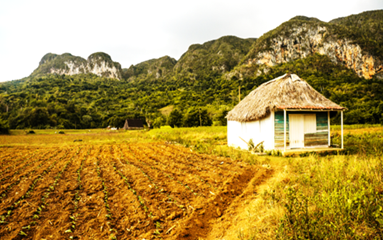When you travel to any town in rural Cuba, you first notice the large expanses of uncultivated land and the absence of grazing cattle.
Apr. 27.– Using both hands as a loudspeaker, the truck driver's assistant announces: "Come on, you're staying. Two passengers to San Antonio de los Baños for 300 pesos." The dilapidated Lido bus terminal, located at 41st and 84th Streets in Marianao, from where buses departed for various municipalities in the former Habana Campo province, is closed due to leaks in the roof.
While they wait, travelers protect themselves from the sun in the doorways of private businesses. Several people carry sacks of provisions. They are going to visit their relatives in the Valle Grande prison, the Manto Negro women's prison, or the Torrens juvenile detention center, near the University of Computer Science on the outskirts of the capital.
When you travel to any town in rural Cuba, you first notice the vast expanses of uncultivated land and the absence of grazing cattle.

“You don't even see horses in the towns like you used to. Owning a horse now means putting your life at risk. Anyone will kill you to steal one and sell its meat,” says Santiago, a resident of San Antonio de los Baños. Years ago, the municipality was known as the Villa del Humor (Village of Humor).
“In San Antonio, there was always a good vibe. People were attentive to visitors, and every little thing was a joke. July 11, 2021, was the last straw. People aren't in the mood for jokes anymore,” says Migdalia. It's 11:30 a.m. Since 7:00 p.m. the day before, there's been a massive blackout in the town. “We've had blackouts of 15 and 23 hours a day for almost a year. They keep the lights on for two hours. It's an abuse these heartless people (the rulers) have toward Cubans. And it's not just electricity. We have a water shortage; we haven't had ..."
[ Texto completo ]
Comments powered by CComment